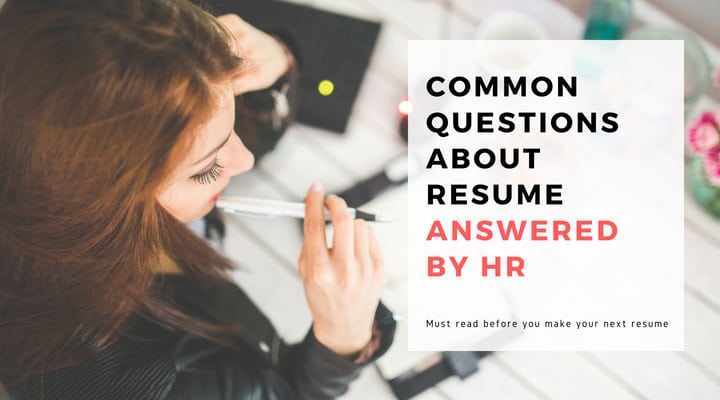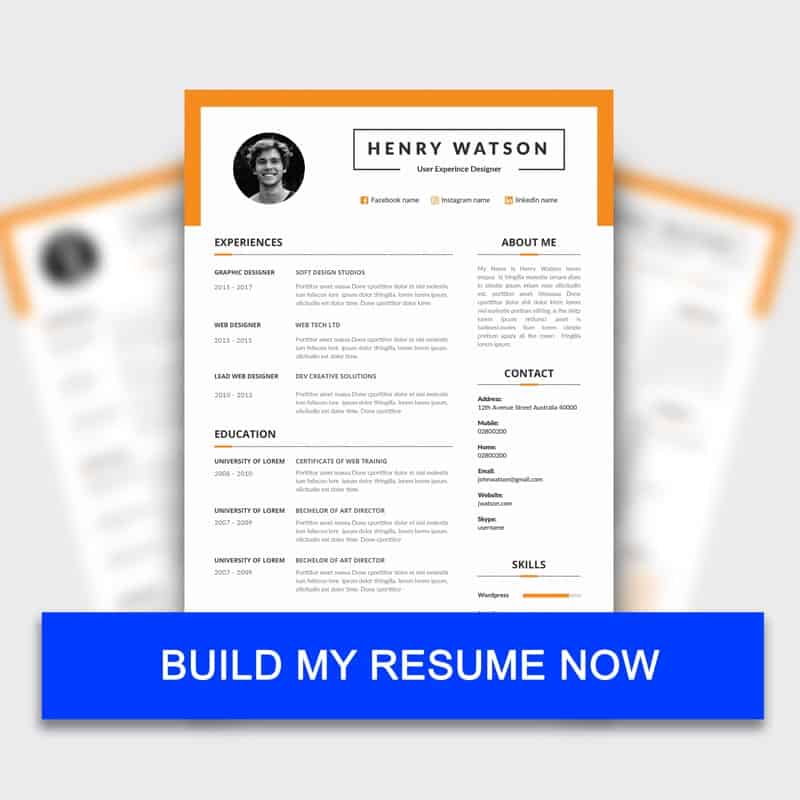Your resume is your first line of defense on the quest for a new job. Before hitting send, you should do everything you can to make your resume stand out. While there are no strict rules when it comes to building a resume, there are several guidelines that you should always follow. The problem is that these guidelines change with the times. Should you include an objective? What about the one-page rule?
Given below are answers to some of the most common such questions, which can help you to build your resume.
Should you have an “objective” on the top of your resume?
Never! No more objectives on resumes. Objectives solely state what you want as the job seeker. Frankly, employers do not care what you want. They want to know how your past experience, education, and training will add value to their organization if they decide to hire you. This is achieved with a summary.
So, it gives you another question to ponder upon now that,
Should my resume have a summary?
Absolutely! Not only does a summary outline of how your past expertise could make a difference in the prospective company, it is the ‘first impression’ area of your resume. This is where you spell out clearly what job you are pursuing, so the recruiter does not have to guess what job you want. The resume summary is also an opportunity to include keywords that pertain to your profession and industry.
One of the most common resume related doubt is
How long should my resume be?
If you have 10 years or less experience, a one-page resume for most candidates is suitable. With over 10 years of experience, having a 2-page resume is very acceptable and, in some cases, three pages is ok, too. As you write, realize you must keep the reader engaged in 5-10 second increments. Just because you write it, does not mean it is going to be read. Even if it is a one-page resume, there are no guarantees that the reader will make it to the bottom of the page. So, you need to motivate your reader to keep scrolling and reading
Should I include a cover letter?
Cover letters are only useful if they are specifically tailored to the role. Don’t use a generic cover letter as it looks as though you haven’t put in any effort. If you are going to use a cover letter, use it to clearly outline where your skills and experience match those required in the role and ensure that it is correctly addressed.
Should I use a number of different fonts of my resume, to add visual interest?
Unless you are a graphic designer yourself, don’t do it! Use one easy-to-read font, like Arial or Times New Roman. Use 12-pt. type so your resume is easy to read. Leave as much white space as you can. White space is your friend!
How should I title my resume when I save it to my hard drive?
Name your resume your own name and the word “Resume” on your hard drive and rename it every time you send it to anyone. Rename your resume each time you send it to someone with your name and the company name plus the month and year, like this:
Rahul Malhotra Resume Venus Pharmaceuticals August 2018
How much personal information should I include?
Generally, you should avoid too much personal information on your resume. Remember the employer is looking for an overview of your skills, think about what is relevant. But make sure you include all the required details and anything specifically asked by the recruiter.
Should you include every job you have ever worked, even if it was just a two-month contract or was 25 years ago?
Do not go back more than 15 years. There are exceptions to the rule. Did you work for a Big 8 CPA firm? Recruiters list that since it is amazing training and upbringing in that profession to have started during that time. Were you on the finance team of MTV when it started or on a cool tech startup in the early 90’s? That could be worth listing if you are still a financial pioneer in your current position to show that you have always been on the forefront of your profession. You can include contract assignments if it makes sense to do so.
When I print my resume, for instance, to bring it to an interview or a networking event, should I print it on special “resume paper” that is sold for that purpose, or just use plain bond paper?
Please don’t bring your hard copy resume to a networking event. It’s wonderful to meet people at an event like that but unless the event is organized around the idea of sharing resumes, leave your paper resume at home.
When you print your resume you can use a slightly heavier white bond paper that you normally put in your printer. There is no need to buy special “resume paper”.
These are some of the most common questions we ask while writing our resume. Following them can take you one step nearer to your goal of finding a good job.

